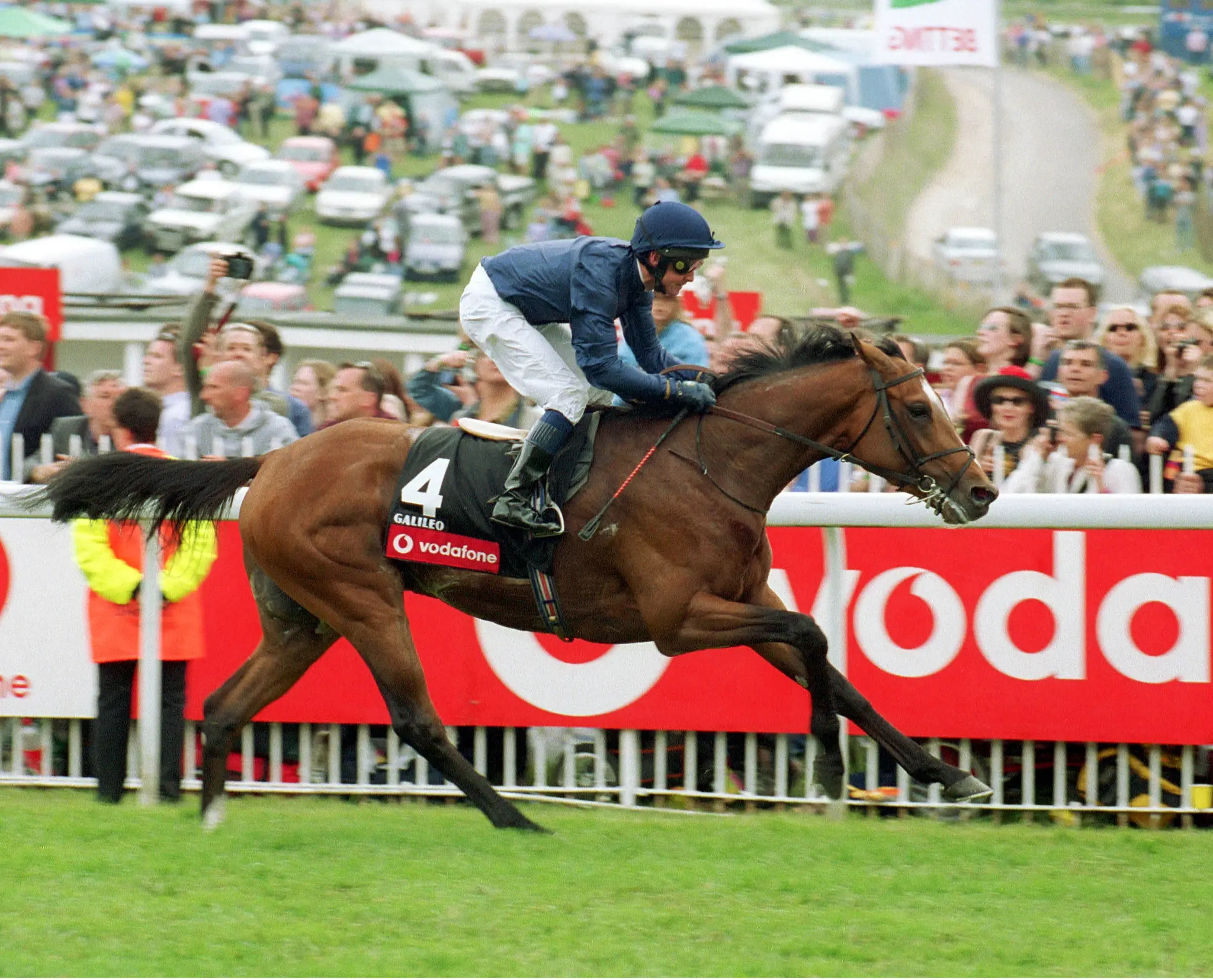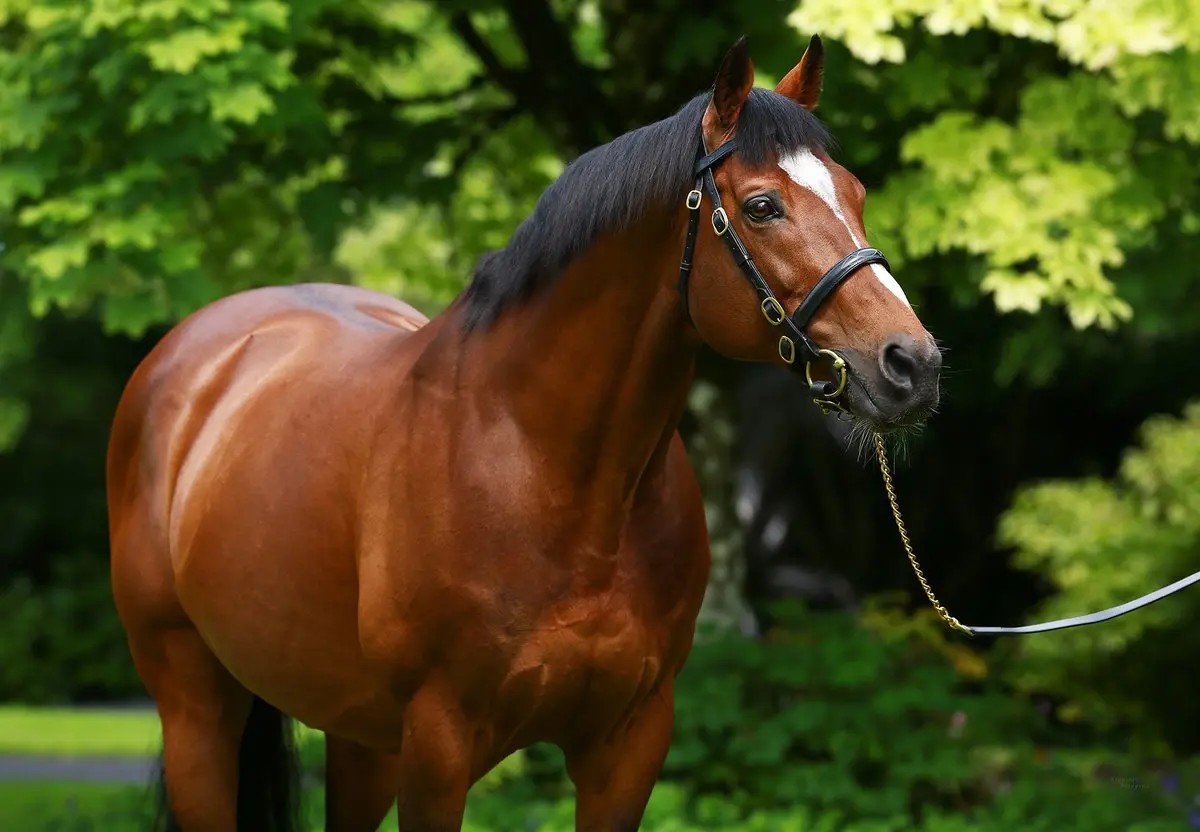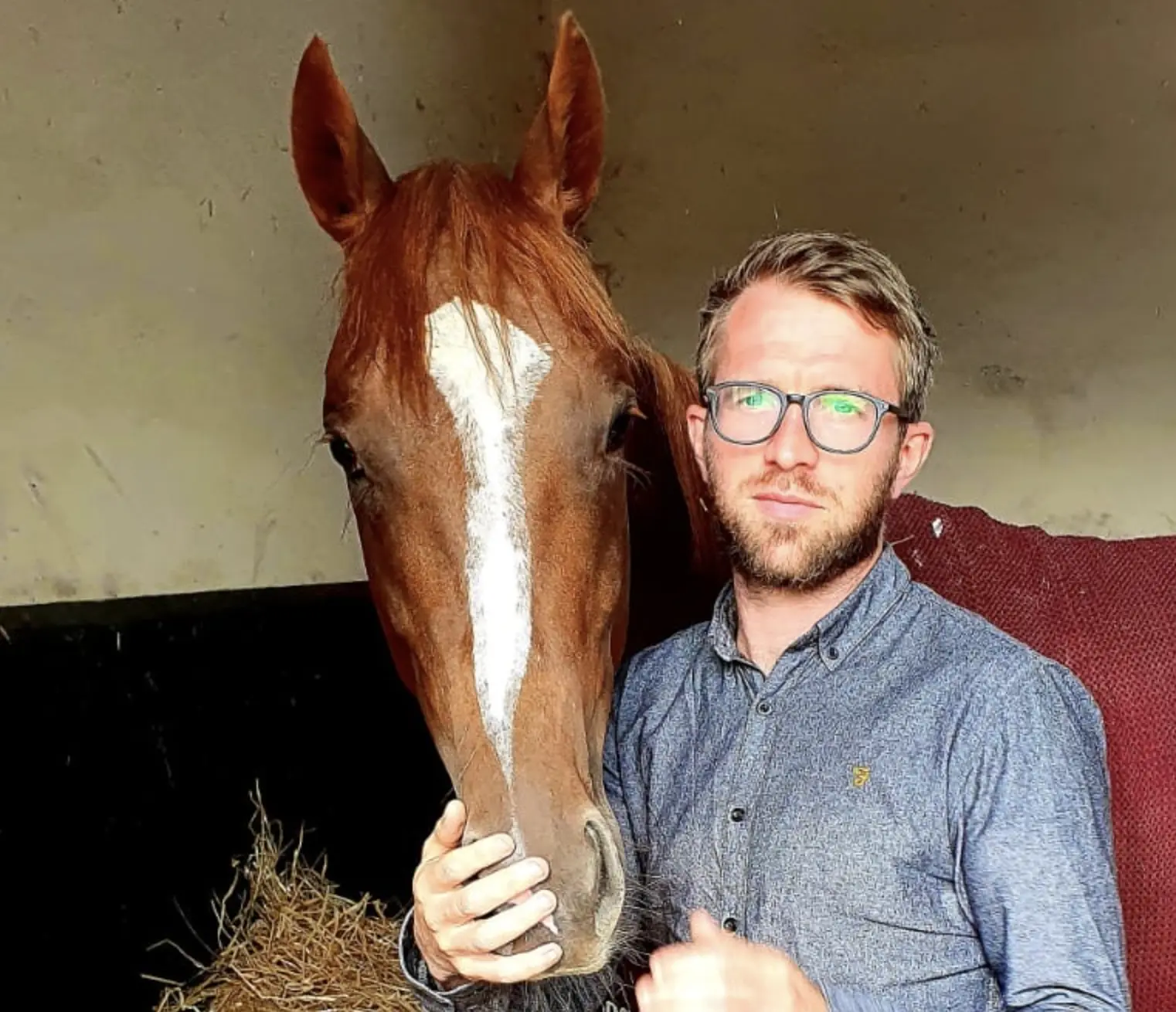Galileo's life and legacy to racing: The story of a champion
By Johnny Ward
Last Updated: Tue 5 Dec 2023
If Aidan O'Brien were primarily the human responsible for the greatness that Galileo and his sons and daughters achieved, his history would have never been written, were it not for Vincent.
It is a story often told, and no worse in the next telling. The mystery of life is that Galileo greeted Saturday morning without knowing that it would be his last, unaware that his incredible life and equine royalty was coming to a close. The mystery of the bond between human and animal is something tantalisingly less than tangible - but Vincent O'Brien had an eye like few others, if anyone.
Vincent, the Master of Ballydoyle before his namesake, liked to analyse a thoroughbred firstly by surveying his or her head, as an artist might the person he or she is painting.
The American industrialist Charles Engelhard was said to be the figure Ian Fleming based Goldfinger on, but what is certain is that he invited MV O’Brien to Canada to examine a yearling by the stallion Ribot.
No matter how beautiful you're told something is if you cannot see it yourself, you can't pretend. Vincent didn’t like the yearling much, so rather than waste a trip, he asked if there were any other young steeds to look at. His eye was filled with a colt by Northern Dancer.

Galileo en route to victory in the 2001 Derby
The 1964 Kentucky Derby winner was a new stallion, most of which fail; his progeny were unproven. There is no exact science to this game, but O'Brien had seen enough to put aside any doubts; at this stage, he was purchasing habitually at the top US sales. He persuaded Engelhard to buy the yearling, and apparently it took some persuading, at $84,000. So commenced a dynasty that revolutionised the buying, breeding and racing of racehorses globally.
Named Nijinsky, the Northern Dancer horse became one of the all-time great champions. And it was primarily because of his success that Northern Dancer became the most influential sire in history. He sired Sadler’s Wells, who became perhaps the second-most influential sire in history. And he sired Galileo, who became perhaps the third-most influential sire in history.
What is particularly beautiful about the Galileo story is not necessarily what he achieved as a racehorse. He was named in honour of an Italian astronomer, but not everyone could see the star he would become after his racing career.
In some respects, he belongs to another era. When he faced a 17-runner Leopardstown field one winter's afternoon in 2000, bookmakers had heard so much about him that they chalked up 2-5 initially - and these were the days of chalk.
By the time he made his fourth visit to Leopardstown, having never lost a race, Godolphin had a plan to beat him with Fantastic Light. This was racing at its very best.
When Galileo was usurped by Fantastic Light in 2001, nearly 20,000 were present.
"They came to crown a king at Leopardstown," Ian McClean wrote in the Sunday Independent the next morning, "but found that the crown did not quite fit. (It was) a rematch which caused more stir at the Foxrock venue than any Flat race I can remember."
The crowd that day has became almost unimaginable a couple of decades later. Galileo was box office, but most Derby winners have forgettable stallion careers and it seemed as though Galileo's would be no different.
That's what's so inspiring about Galileo: he had, despite having so much going for him, been written off - if not by Jim Bolger.
"Nobody down there [Coolmore] was saying anything good about Galileo," he would tell the Racing Post. "I’d say there was every danger Galileo might have got sold to Japan, or whoever would have him. They can move things on fairly quickly there, and he definitely wasn’t going well when they reduced him to €37,500."
Galileo soon took off. Reel off the years he was champion sire (so far): 2008, 2010, 2011, 2012, 2013, 2014, 2015, 2016, 2017, 2018, 2019, 2020. By Sadler’s Wells out of Arc heroine Urban Sea and thus a half-brother to Sea The Stars, Galileo sired Irish 1,000 Guineas winner Nightime from his first crop. He became the most successful Group 1 sire of all time when his daughter Peaceful won the same race in June of last year, when he also set the record for the number of Epsom Derby winners sired at five: New Approach, Ruler Of The World, Australia, Anthony Van Dyck and Serpentine.
If there were one frustration with the Ballydoyle-trained sons and daughters of Galileo, is that they half-tended to morph into each other. There were too many stars to go through here. There was Australia. There was Found. There was Order Of St George. There was even Was. Forget that Sue Magnier named siblings Together Forever and Forever Together: Galileo's offspring might have had different ground and trip requirements but they had an incredible toughness and it was remarkably rare to come across one who didn't want to win.
"He was an amazing, magic horse" - Aidan O'Brien on Galileo
Given how many horses he sired, that is a truly rare thing and arguably one of the quirkiest horses he produced was not only by far the best one but perhaps the greatest horse we've ever seen.
Whisper it: Frankel has not been universally regarded as a success at stud, because all of the best mares were sent to him and he did not strike nearly as soon with Classic winners as his daddy did. So there is a sense of order that he has rather exploded into life as a sire in the past couple of months, siring the winners of the Epsom Derby, Irish Derby and Friday's Falmouth Stakes, notably over a mile.
On my first trip to Coolmore, I was introduced to an ageing Sadler's Wells, whose kind demeanour left a mark on me holding still. "He can only cover a mare a day now," the Coolmore worker told me, "though he'd like to cover a few more."
His son, no more than his dad, would succumb to the next world. Rumours of late were that he was struggling to get mares in foal and fading fast. Still, his death comes as a major shock to an industry that has had its share of seismic realities in 2021.
Coolmore do not have Frankel but, with St Mark’s Basilica becoming one of the modern greats with his performance a week before Galileo's death, they may have found his successor. Still, the odds on him being nearly as successful as his maternal grandfather are - and the man after whom he is named after may like this - astronomical.
'PERFECTION': that's how the Racing Post's front-page relayed Galileo's Derby win the day after. As I write this, I look forward to watching Bolshoi Ballet bid to show his true talent at Belmont later on, in the country where Galileo last ran, that same country in which, one might say, his story began.
When history judges who will leave a greater mark on the sport, Galileo or Aidan O'Brien, the latter will accept coming second with all the humility you'd expect of him.
Noel Stapleton, Galileo's long-time handler at Coolmore Stud, described him as "a true gentleman - and I think he knows how important he is."
How much does a horse know, and how much will we ever understand them? Will there ever be his like again?
Most viewed
Dave Nevison's tips: my best Boxing Day bets
Boxing Day tips: race-by-race guide to the action at Kempton
Boxing Day tips: Andy Stephens has a bet for all 11 meetings
The big festive favourites: will they be bankers or blowouts?
Katie Midwinter: 50-1 and 18-1 chances among Boxing Day fancies
Copyright 2025 Racing TV - All Rights Reserved.
Please bet responsibly
Copyright 2025. All rights reserved

